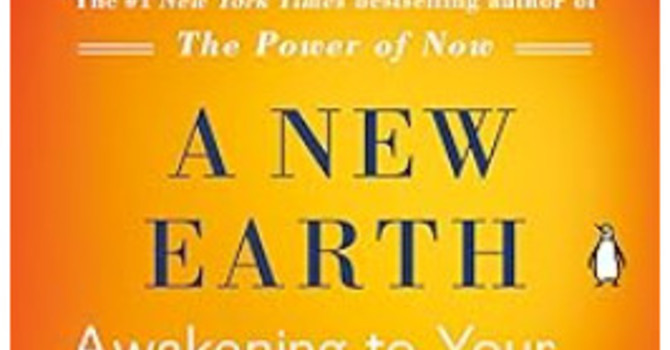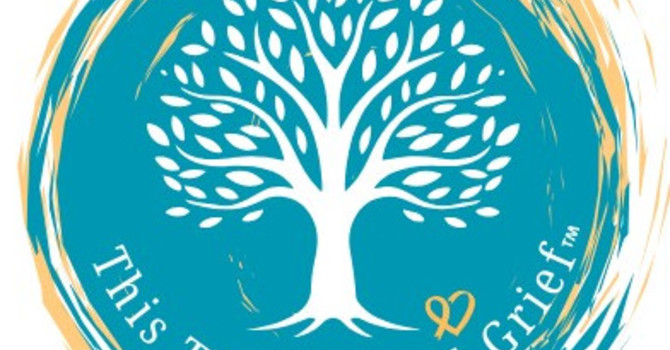
In thinking about death, a spectrum of emotions can arise—fear, sadness, confusion, perhaps even anger.
Thanatology, a field that bridges both science and compassion, is the study of death and dying, with a deep focus on the impact it has on those left behind.
It’s not just about the biological aspects of death but extends to the emotional, social, and cultural ramifications of loss.
For those of us working in this field, thanatology is less about trying to find answers to death and more about guiding people to understand and process the inevitable truths and feelings that come with it.
What is Thanatology?
Derived from the Greek word "thanatos," meaning death, thanatology is a multidisciplinary field that incorporates insights from psychology, sociology, anthropology, medicine, and even theology.
Thanatologists study the psychological and social processes people experience in the face of loss, seeking to answer one of humanity’s most profound questions:
How do we make sense of life, given the certainty of death?
King’s University College at Western University offers North America's only Bachelor of Arts in Thanatology. This unique, four-year program provided me with an in-depth education on topics such as bereavement and grief, ethical issues, palliative care, suicide, children and death, spirituality, philosophical perspectives, and cultural considerations.
The counselling course, with its focus on experiential exercises, was particularly impactful, helping me develop practical skills that now guide me in offering compassionate, effective support to those facing loss.
King’s multidisciplinary approach allowed me to combine my Thanatology major with a Social Justice and Peace Studies major, both of which tie into my Master’s and Bachelor’s degrees in Social Work, broadening my understanding of grief within diverse social contexts. The combination of my formal training and personal journey shapes my approach to supporting others through loss.
This academic foundation, paired with my own lived experiences, has been central to shaping my work in thanatology and social work today.
My own journey has provided insights that no coursework could fully capture, making it possible to connect with others in deeply meaningful ways. The blend of personal experience with formal education allows me to offer empathy that is informed both by my own understanding of grief and the robust framework I gained through my studies.
Whether supporting others through counselling, facilitating support groups, or participating in community health initiatives, my work in thanatology is enriched by this dual perspective.
At This Thing Called Grief, we understand that grief is more than just a reaction to loss—it’s a complex, individualized experience. Thanatologists like myself contribute to this understanding by providing research-based, compassionate support to individuals and communities navigating bereavement.
This work is deeply personal for me, and through This Thing Called Grief, I strive to offer a safe, supportive space for clients to explore and process their grief. My studies at King’s helped me develop the tools to serve others with a commitment to empathy, respect, and resilience, drawing not only from academic insights but from the profound impact of lived experience as well.
The Importance of Thanatology
Understanding and coping with death and grief are essential components of human experience, yet they’re often overlooked.
Thanatology helps us fill this gap by focusing on key areas:
- Understanding Grief as a Process
- Thanatology emphasizes that grief is not something to "get over"; it’s a natural, ongoing response to loss, with a timeline unique to each person. Within the field, we study various models of grief, each offering unique insights into the grieving process.
A widely known model is Elisabeth Kübler-Ross’s five stages of grief - denial, anger, bargaining, depression, and acceptance.
- Notably, Kübler-Ross originally described these stages as experiences of people actively facing their own death rather than those grieving the loss of others. Over time, however, these stages have been adapted to help understand the journey of those coping with loss.
It’s crucial to remember that not everyone experiences these stages in a linear fashion, and some may not experience them at all.
- Understanding the Dual Process Model: A Balanced Approach to Grieving
- The Dual Process Model of coping with bereavement, developed by Margaret Stroebe and Henk Schut, provides a balanced framework for understanding grief. This model proposes that grieving individuals naturally shift between two types of stressors:
Loss-oriented stressors, which focus on the pain and sadness of the loss itself, and
Restoration-oriented stressors, which involve adapting to life changes that follow the loss.
- Stroebe and Schut’s work emphasizes that grief is not a straightforward journey but a dynamic process of moving between confronting the pain of loss and re-engaging with life’s ongoing responsibilities.
This flexible approach respects the unique rhythms of grief, allowing people to process emotions without the pressure of a rigid, linear path, and recognizing that healing often involves cycles of reflection and renewal.
- Developing Coping Strategies
- Thanatologists recognize that there’s no one-size-fits-all way to cope with loss. We encourage people to explore what helps them, whether it’s talking with others, engaging in reflective activities like journalling, or participating in group settings that foster shared understanding.
- Professionals in this field often use therapeutic methods, such as art therapy, writing exercises, or structured memory-making and continuing bond activities, to support healing.
- Exploring Cultural and Spiritual Perspectives
- Different cultures have unique rituals, beliefs, and practices surrounding death. For instance, in some cultures, death is seen as a continuation rather than an end, and in others, specific rituals are performed to honor or “send off” the deceased.
- Thanatology teaches us to approach these cultural differences with an open mind, encouraging a broader, more inclusive understanding of death that respects and honors diverse practices.
- Promoting End-of-Life Conversations and Planning
- Another component of thanatology is the practical side—helping individuals and families discuss their preferences for end-of-life care.
- These discussions are often difficult but are a crucial part of the dying process, offering a sense of control and comfort to those facing terminal illnesses.
- Through education, Thanatologists help people understand and navigate complex decisions around palliative care, advance directives, and, in some regions, Medical Assistance in Dying (MAiD).
How Thanatology Can Help You
If you’re reading this because you’re struggling with grief or have questions about death, understanding some of the principles of Thanatology might offer clarity and solace.
- Seek Support
- Navigating grief can be incredibly isolating, and it often requires a kind of support that close friends or family may not fully understand.
- Professionals trained in thanatology bring a unique combination of empathy and expertise to help individuals process grief.
- Whether through one-on-one counseling or group settings, thanatological support offers a space for honest conversations and healing.
- Educate Yourself on Grief
- Grief isn’t simply a matter of “getting over it,” and there is no timeline.
- Learning about the natural progression of grief, which can provide a sense of grounding and validation in the midst of turmoil.
- Understanding grief’s complexities and the ways it can impact both mental and physical health might also help you feel more empowered to care for yourself or others during difficult times.
- Connect with Others
- Support groups, especially those built on thanatological principles, create spaces for individuals to come together, share stories, and offer mutual support.
- These groups remind us that grief, while personal, is a universally shared experience, and through collective healing, we can find resilience in each other.
Thanatology in Today’s World
In today’s society, conversations around death are often avoided. We’re conditioned to fear and sidestep mortality, which can create a culture of isolation for those grieving. Thanatology offers a path to challenge this taboo, advocating for honest dialogue about death and dying.
In recent years, topics like end-of-life care, MAiD, and mental health have brought thanatology to the forefront, urging both professionals and laypeople to rethink our approach to loss and bereavement.
At This Thing Called Grief, we have two Thanatologists on our team. Our combined expertise allows us to provide comprehensive, compassionate care rooted in both academic understanding and lived experiences of grief and loss.
Moving Forward and Honouring Memories
Grief, loss, and death are part of the human condition, and while they are difficult, they do not have to be borne alone. Thanatology encourages us to view death not as something to fear but as something to understand and discuss openly. By fostering a supportive, compassionate environment, we can collectively reframe our relationship with loss and find pathways to healing.
If you or someone you know is experiencing grief, remember that help is available. Whether it’s through individual counselling, community groups, or simply learning more about thanatology, there are ways to ease the journey. Death may mark the end of our physical journey, but it also unfolds a profound invitation to engage with life in its fullest, most fragile form.
In its wake, death urges us to foster connections that transcend time, honouring memories that breathe life into the past and present. It asks us to cultivate resilience—not as a means of moving on, but as a way of carrying forward the essence of those we have loved. Through this lens, death becomes not solely an ending, but a sacred chapter that enriches our collective experience, deepens our empathy, and reminds us of the enduring impact we hold within and beyond our lifetimes.
Mr. Sam Vander Schelde
Contact Me


